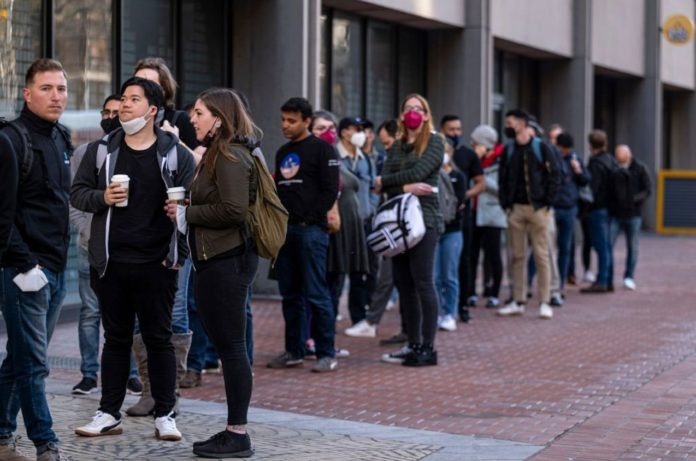In a new study conducted by researchers from the University of South Carolina in the United States and Xiangya Hospital, Central South University in Hunan Province in China, it was discovered that spike proteins of the SARS-CoV-2 coronavirus typically impair the lipid metabolic and autophagic pathways in human host cells, increasing their susceptibility to lipotoxicity via ferroptosis, which frequently results in the damage of cells and tissues of the heart, liver, and kidneys.
The COVID-19 disease has already been shown to disrupt lipid metabolism in patients, but the precise mechanism remains a mystery.
The researchers wanted to see if the severe acute respiratory syndrome coronavirus 2 (SARS-CoV-2) Spike protein affects lipid metabolism in human host cells.
Using the pcDNA vector harboring the Spike gene expression cassette, the researchers created a Spike cell line in HEK293 cells. The empty pcDNA vector was used to create a control cell line.
The expression profiles of genes involved in lipid metabolism, autophagy, and ferroptosis were studied. Lipotoxicity-induced necrosis was measured using palmitic acid (PA) overload.
Spike cells demonstrated a considerable increase in lipid depositions on cell membranes, as well as dysregulation of expression of a panel of molecules involved in lipid metabolism, autophagy, and ferroptosis, as compared to controls.
In addition, in response to PA, the Spike cells demonstrated an increase in nuclear factor erythroid 2-related factor 2 (Nrf2), a multifunctional transcriptional factor. Furthermore, the Spike cells showed enhanced necrosis in response to PA-induced lipotoxicity via ferroptosis in a time- and dose-dependent manner compared to control cells, which were inhibited by the Nrf2 inhibitor trigonelline.
The Nrf2 inhibitor trigonelline (TRG), the ferroptosis inhibitor ferrostatin, and the PI3K inhibitor Wortmannin were found to minimize the harmful consequences of lipid buildup within the cells that occurred in response to a rise in PA that was exacerbated in the presence of the spike protein.
Similar results were also observed in a cell line that simulated a cardiomyocyte cell line in response to the same technique. These findings point to the spike protein’s participation in increased toxicity produced by PA buildup.
“The research findings demonstrate that the SARS-CoV-2 spike protein has a direct role in exacerbating the toxicity of lipid accumulation within the cell as a result of the disruption of many lipid pathways in response to the viral infection,” says the corresponding author, Dr. Wenbin Tan, adding “This provides some insight into why obese patients are at a greater risk of severe COVID-19 as compared to those with normal body weight.”
Interestingly, an alkaloid called [The Nrf2 inhibitor trigonelline] TRG, which is found at high levels in coffee, is also an effective inhibitor of lipotoxicity.
They found Inhibitors of Nrf2, PI3K, and ferroptosis reduced this toxic effect, “which was observed in the form of spike-induced necrosis. Interestingly, an alkaloid called TRG, which is found at high levels in coffee, is also an effective inhibitor of lipotoxicity. This represents a potential and feasible preventive strategy to mitigate COVID-19-associated cardiometabolic pathologies associated with obesity.”
It’s also worth noting that PI3K is required for infected cells’ autophagy during endocytosis and is a component of the growth factor receptor pathways that drive viral protein phosphorylation during SARS-CoV-2 infection. As a result, PI3K is a good target for medications that fight or prevent COVID-19.
The SARS-CoV-2 spike protein can interfere with the normal defensive response to SARS-CoV-2 by disrupting the expression of multiple PI3Ks in the host cells. This can be accomplished by increasing autophagosome production while decreasing autophagosome-lysosome fusion. After that, autophagosomes collect within the cell, causing lipotoxicity.
Due to the fact that Wortmannin, a steroid metabolite of the fungus Penicillium funiculosum, exhibits the capacity to counteract this enhanced lipotoxicity, this substance, along with other PI3K inhibitors, may be beneficial in treating COVID-19 patients with elevated serum lipid levels.
Nrf2, or nuclear factor erythroid 2-related factor 2, is a transcription factor that regulates over 1,000 genes involved in a variety of metabolic and homeostatic processes, including detoxification, protein breakdown, antioxidative defense, as well as iron and lipid metabolism.
When the normal occurrence of myocardial autophagy is blocked, as in chronic type 1 diabetes and obesity, this broad functional capability of Nrf2 extends both to the adaptive capacity of the heart muscle and to the enhancement of maladaptive cardiac events. This causes cardiac musculature malfunction and aberrant remodeling.
The rise in Nrf2 expression in response to SARS-CoV-2 spike protein production was determined to be mediated by PA accumulation, and the ensuing necrosis was inhibited by an Nrf2 inhibitor.
Further research is needed to unravel the specific underlying processes of lipid metabolism dysregulation and to determine how defective Nrf2 signaling causes host cardiac cells in obese COVID-19 patients to experience ferroptosis driven by lipotoxicity, according to the study team.
Results showed that Spike protein damages lipid metabolism and autophagy in host cells, increasing their vulnerability to lipotoxicity through ferroptosis that can be inhibited by an Nrf2 inhibitor, according to the findings.
The findings of this recent study also point to Nrf2 playing a key role in Spike-induced lipid metabolic abnormalities.
The findings of the study were posted to biorxiv, a preprint server, and are currently undergoing peer review.
Image Credit: Getty
You were reading: This is the beverage you should drink to keep your Heart, Kidneys strong during and after COVID-19 infection
